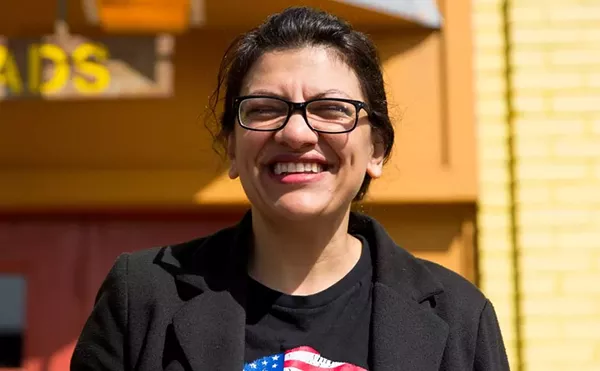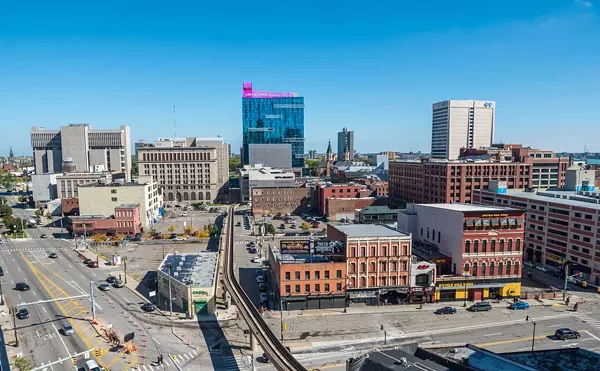Warren Evans
Q: If elected in the May special run-off election, and, assuming you are among the two finishers in the August primary, what three things can you promise to accomplish before the November run-off election?
A: I would: 1) improve the Police Department's response time by reallocating resources within the department, 2) bring in a respected team of experts from outside the city to give me an unvarnished evaluation of the city's financial condition and 3) start a dialogue involving the community and all city departments to develop plans to stabilize and bring back our neighborhoods.
Improving response times can be accomplished by restructuring the way the Police Department allocates its personnel. For instance, there is no reason more mundane calls need to be handled by a two-person police car. We are short of officers at the moment and we must do a better job of deploying those we have in the most effective manner possible, which would mean quicker responses times on runs. At the same time, I would strike an agreement with the schools so that there would be a far more collaborative and effective effort to protect school children on the way to school, during their time at school and on the way home from school. A safer environment for our children would be more conducive to learning.
As far as evaluating the city's finances is concerned, I would take a page from the book of Coleman Young, who brought in New York financier Felix Rohatyn in the early 1980s to evaluate the city's budget during a crisis and develop a plan to pull the city out of deficit. Bringing in someone of that stature will provide an unvarnished perspective on our budget, which is necessary if we are to produce a plan to get out of our structural deficits without giving away the farm.
If we are going to stabilize and bring back our neighborhoods, we must involve both the community and city departments in the dialogue in a very significant way. The Skillman Foundation already has begun an initiative working with selected communities in city to get their feedback and input in plans to rebuild specific neighborhoods. I would apply that approach to the entire city. At the same time, I would make sure city departments are sharing information between themselves as well as sharing information with the public. We have to break down the silo mentality that isolates city departments from one another and look for ways to build collaboration and cooperation with other departments and with the community.
Q: Depending on who is doing the estimating, the city of Detroit faces a potential budget deficit of $100 million to $200 million by the end of this fiscal year in June. Name three specific cuts you'd make to help balance the budget and the savings they'd achieve.
A: It is hard to honestly answer that question without more data because the city's finances are so confused. A couple of months ago we heard an estimate of a $100 million deficit. Then it was $200 million, then it was $300 million and then the City's bonds were downgraded to junk grade. As I mentioned in the first answer, a critical part of developing a long-term plan to bring city finances into balance is to bring in experts from outside the city who have no vested interest to evaluate our finances and provide a clear picture of where we are. Only then can we truly develop a realistic, effective plan.
One area where I believe that we can achieve immediate savings is improved relationships with the city workforce. I believe the city wastes a lot of money settling grievances that would never have developed if there were better relationships between city workers and city administrators. One way I would solve that situation would be to have a labor representative in the mayor's office who would serve as a liaison with our city unions to nip potential problems in the bud. If you have happy workforce, you have a more efficient and productive workforce. When we were developing our plan to have sheriff's deputies provide security for DDOT buses, the drivers' union, the Amalgamated Transit Union, was a critical part of drawing up an effective plan.
Q: The city of Detroit continues to lose thousands of residents a year. Name one innovative program that you'd implement to reverse that trend.
A: A key first step in stabilizing our communities is to effectively target and deal with the issue of dilapidated and abandoned homes. Some homes need to be demolished, while others are repairable and should go to community groups for rehab.
The U.S. Department of Housing and Urban Development (HUD) recently awarded more than $3.9 billion of Neighborhood Stabilization Program (NSP) funds to states and communities across the country to address the nation's abandoned and foreclosed homes crisis. Detroit's share of that is just over $47 million. That is a substantial amount of money, but it is not enough to revitalize all of Detroit.
I would focus NSP dollars in Detroit on two main areas: 1) those surrounding schools and 2) those next to occupied homes. We need to build an environment where our youth will feel safe commuting to and from school by rehabilitating or demolishing vacant abandoned homes that surround schools. At the same time, rehabilitating or demolishing homes next to occupied homes will make residents of the occupied homes feel safer and relieve them of the eyesore next to their home. By targeting these two areas, we will create a safer environment for our youth while attracting new residents that will ultimately bring more funding to help stabilize our neighborhoods.
I also would ask the prosecutor to reinstitute a successful program the office had some years ago that would allow for the seizure of drug houses after multiple raids and documentation that it was a drug house. The prosecutor's office sold those houses for minimal amount to neighborhood groups who would restore them and put families in them.
Q: Do you think Detroit should continue to send garbage to its waste-to-energy incinerator?
A: Now that the 20-year revenue bonds that were issued to build the Greater Detroit Resource Recovery plant are being retired, we have to conduct a thorough review before deciding what to do with the plant. The community needs to be involved in that review. If there is truly a health hazard from the plant, then obviously we should not put community at risk. At the same time, it represents a sizeable asset for the city and we need to determine its true market value, particularly at a time when the city is in such difficult financial straits. In the end, the decision must be driven by what is in the best interests of the city and our residents. I would conduct that review in a very open and transparent way to assure that all voices in the community are heard and taken into account before a final decision is made. Whatever that decision is, I am committed to assuring that the city pursues an aggressive recycling plan that removes recyclable materials from the waste stream and recovers them for reuse.
Q: To reduce dependence on foreign oil and address the problem of climate change, President-elect Obama is promising that the federal government will make significant expenditures to promote the development of green technologies and energy-efficiency programs. What would you do as mayor to help Detroit become a leader in the "green economy"?
A: I believe the potential for jobs as we create a "green economy" is tremendous and that it can be a source to replace jobs that used to be in automotive sector. I would as Mayor work very closely with our universities to encourage research and development activities that can turn into entrepreneurial opportunities that create new jobs. That would include supporting Gov. Granholm's initiatives in this area. Just as the auto industry represented a new economy with new opportunities for workers and thousands of new jobs at the beginning of the 20th Century, I believe "green" jobs can be an equal source of new jobs and prosperity for our city at the beginning of the 21st Century.
Q: Can you recount a difficult situation that required you to display a high degree of personal integrity?
A: When I was a young Sheriff's deputy I became the first African American member of the Sheriff's dive team. We received a call one day to go to a house in Belleville where a young child had fallen into a swimming pool in the back yard and the mother couldn't swim. We raced to the scene, pulled the baby from the pool and I began to deliver CPR trying to bring the baby back to life. All at once, as I'm delivering CPR, the mother comes over to me, puts her fingernails under one side of my mouth and rips all the way across my face, saying something about me putting my black lips on her baby. Here I'm trying to breathe life into her baby and all she can see is that I have put my black lips on her baby. It took all my strength, with her attacking me and blood poring from my face, to maintain my focus and continue to revive her baby. But I did it and the baby survived.
Q: What is one of the biggest mistakes you've made in your life, and what did you learn from it?
A: Probably the biggest mistake I have made is to approach problem solving in the public arena with a belief that everyone involved in the process is trying to develop the best answer to solve the problem. At times I have thought everybody at table was working on same issue and trying to solve the problem, but then discovered there were side issues involved. What I have learned is that there are a lot of people who are more interested in the politics of the situation than in public service. I've found myself in situations where there is a clear public policy answer to the situation, but where there are peripheral side issues that prevent people from doing the right thing. What I've learned is that many people who work for government aren't really working for the people. Their own job or their own advancement is the end game for them, not providing service. It is very disappointing and very discouraging, but I have refused to allow it to stop me from doing what I believe is best in that situation.
Q: Name one of your favorite books (other than the Bible). Why is it significant?
A: I love to read, but I can't really single out one book as my favorite. My taste in reading primarily focuses on history and biographical works. Recently I've read books about the Pullman Porters, Jack Johnson, Colin Powell and Thurgood Marshall. In addition, I love anything written by John Grisham.
Q: Tell us what one of your favorite movies is, and why it is that you like it so much.
A: I can't really single out a favorite movie.
Q: Is their a piece of music or work of art that moves you deeply? Tell us why.
A: As a Detroiter who grew up to Motown music, any list of my favorite music has to start with that. Beyond Motown, my tastes in music and art are rather eclectic and, again, I couldn't single out one particular work that I would say "moves me deeply."
Q: What was your nickname as a kid?
A: I was called a lot of things but I never had a nickname.







